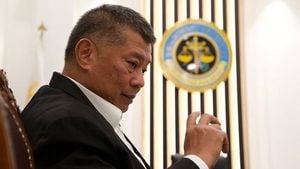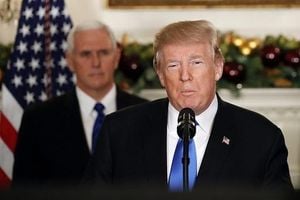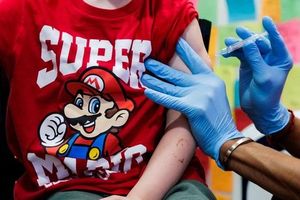British poultry farmers are urgently demanding the UK government allow them to vaccinate their flocks against bird flu as the contagious virus continues to spread, causing concern within the farming community. With 25 confirmed farm outbreaks reported since the start of the annual winter season in October 2024, farmers are increasingly worried about the disease's impact on their livelihoods.
Currently, vaccination against avian influenza is prohibited in the UK, with authorities believing stringent biosecurity and culling measures are sufficient. Despite overall virus levels being lower than previous years, the appeals for vaccination come amid a declared bird flu prevention zone enforcing strict hygiene standards across England, Wales, and Scotland. Affected poultry must remain housed under mandatory rules, impacting farmers like Essex turkey producer Paul Kelly, who has already experienced significant losses during the previous outbreaks.
Kelly expressed frustration over the government's slow response to vaccination needs, stating, "This is poor planning as we need to be ready for another huge outbreak as opposed to reacting..." His comments highlight the rising panic among farmers concerned about the disease's potential spread and how it could devastate the poultry industry.
The British Free Range Egg Producers Association spokesperson Gary Ford described the atmosphere among farmers as one filled with "panic, concern and fear," emphasizing the dire situation they face. Research from the UK's Royal Veterinary College and Chinese institutions adds another layer of complexity, indicating possible risks associated with bird vaccination. Their findings suggest unvaccinated birds experience more infections, but countries with high vaccination rates may also face increased virus mutation rates.
The National Farmers' Union insists it is "essential" for the Department for Environment, Food, and Rural Affairs (Defra) to prioritize creating a workable avian influenza vaccination plan. While currently, only licensed zoos are allowed to vaccinate captive birds, the government is investing resources to explore viable vaccination options. Minister for Food Security, Daniel Zeichner, acknowledged this week the vaccination issue would remain under consideration but warned of significant international trade problems for the UK, which is a major exporter of hatching eggs and day-old chicks.
The situation continues to develop as many farmers assert the need for expedited decision-making, fearing they remain at the mercy of the virus's unpredictability. With the mortality rates from previous outbreaks high, ensuring flock health through vaccination seems like an inevitable next step, with many arguing it could serve as one of the pivotal tools to combat avian influenza.
Vaccinations, if authorized, would not only bolster flock health but could mitigate the risk of transmission to unvaccinated populations, as noted by the researchers. Defra asserts the potential for future vaccination programs will be rooted firmly in scientific evidence and veterinary advice. Farmers remain on edge, as they eagerly anticipate the advisement of the taskforce aimed at addressing vaccination rollout, set to report later this year.
The narrative surrounding bird flu has significantly transformed, placing increased scrutiny on the existing protocols and the government’s responsiveness to farmers’ pleas for action. With biosecurity measures being heavily emphasized, the demand for vaccination resonates louder than ever among poultry producers fearing for their industry’s stability and future.



